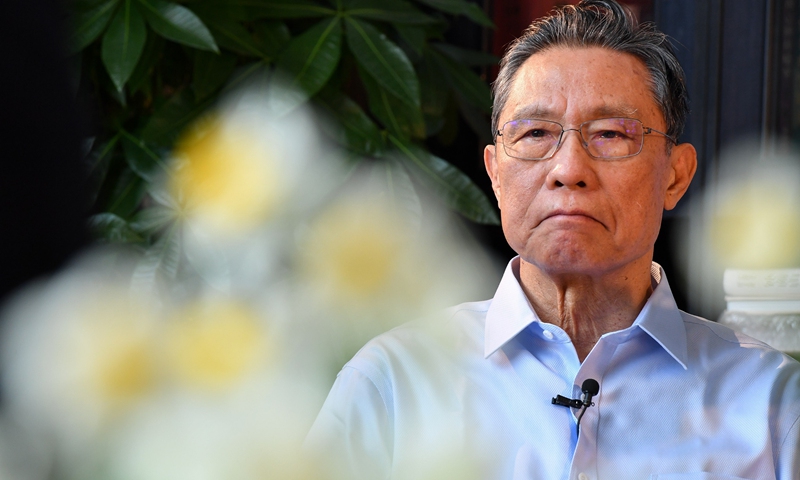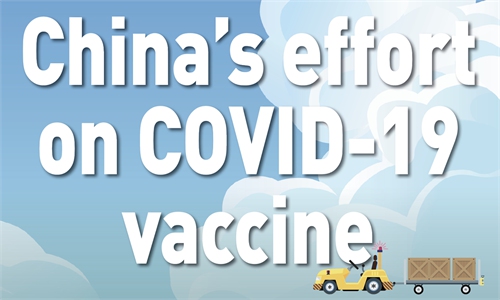
Zhong Nanshan Photo: Xinhua
It will take at least two to three years to achieve herd immunity against COVID-19 worldwide, leading Chinese respiratory disease expert Zhong Nanshan said, calling for global cooperation and unity in ending the pandemic.
Zhong made the remarks on Tuesday at an event hosted by the University of Edinburgh and the Edinburgh Futures Institute, which was also attended by US top infectious disease expert Anthony Fauci.
Zhong is against using some unscientific and inhumane ways of natural immunity to reach herd immunity.
With the development and marketing of vaccines, Zhong stressed that it will take at least two to three years to achieve herd immunity worldwide.
Experts called to accelerate the global inoculation campaign as the threats posed by virus mutations are likely to worsen the pandemic situation.
Chen Xi, an assistant professor of public health at Yale University in the US, told the Global Times that based on the efficiency of vaccination in Western countries, countries with larger populations generally plan to complete mass vaccination by the summer or autumn of this year, and are preparing to restart human and economic exchanges in the second half of the year.
If, when countries achieve herd immunity and the flow of people starts to resume, China's quarantine policy will have a negative impact on its economy. In addition, the novel coronavirus constantly mutates, and the longer the epidemic lasts, the greater the possibility of virus mutations, so vaccination needs to be sped up, Chen said.
Chen believes that if novel coronavirus mutations lead to a rapid increase in virus transmission, it may also impact the long-term effectiveness of the vaccines. If the effect is too large, it can make immunity less effective in the long run, forcing people to get vaccinated every year, as with seasonal flu.
Previously, Zhong stressed that COVID-19 virus mutations should be closely tracked, and it is important to consider which strain of the virus to use as a vaccine if the virus mutates.
As long as the virus is still prevalent in some countries, the worldwide epidemic situation cannot be controlled, Zhong said, adding that eliminating the pandemic needs efforts and decisions based on science and evidence from every country's decision makers.
Seeking global cooperation is not only a moral obligation but also an essential route for the globe due to threats posed by mutated virus variants.
"Successfully containing the pandemic in a single country is not enough. The virus would speed up its transmission in its process of mutation and overturn countries' success in fighting it," the Chinese expert said.
Echoing Zhong's opinion, Fauci agreed that global unity was needed to fight against the epidemic and examples of global cooperation in combating disease were seen with measles and polio.
There is no reason for countries not to launch global cooperation in fighting against the COVID-19 pandemic, Fauci said.


